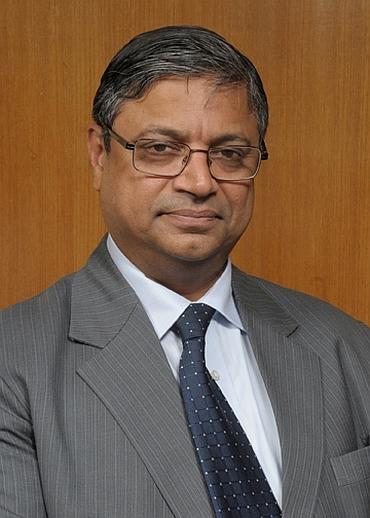 | « Back to article | Print this article |
 The resignation by Solicitor General of India Gopal Subramaniam has created quite a stir in both the government and the judiciary. The SG, who is second to the Attorney General of India, had resigned from his post after the Union government decided to field senior advocate Rohington Nariman along with him in the Supreme Court during the 2G case hearing.
The resignation by Solicitor General of India Gopal Subramaniam has created quite a stir in both the government and the judiciary. The SG, who is second to the Attorney General of India, had resigned from his post after the Union government decided to field senior advocate Rohington Nariman along with him in the Supreme Court during the 2G case hearing. However, senior advocates and former judges of the Supreme Court say that when the judiciary becomes extremely assertive as it has been in the past one year, it becomes very difficult for advocates to present their case. A SG is a very senior counsel of the government and like any other lawyer he too cannot exceed his brief. If the judiciary is being assertive and comes down heavily on these advocates only then can the government be blamed, since he is acting on its instructions.
Justice Santosh Hegde, Karnataka Lokayukta and former judge of the SC who has also been a solicitor general, says that the SG is acting as per the brief of the government and there are times when these advocates make suggestions, which the government may approve of, often leading them to lose favour.
Solicitor Generals work under extreme pressure from the government and from bureaucrats, he said. "In the case of Subramaniam, I am, however, inclined to think that the SG was right in principal. The government is at liberty to appoint a counsel of its choice, but this is the 2G scam we are talking about and the government cannot afford to go wrong. Any error could earn it the wrath of the SC, which could be embarrassing," said Hegde.
Courtesy demands that the either the Attorney General of India or the Solicitor General is consulted before any such appointment is made. These are top law officers and they hold a position of importance, added Hegde.
According to the Karnataka Lokayukta, this is not the first incident where an AG or SG has not been consulted. "Appointments to high-profile posts in the judiciary have often created a storm. Such appointments need to be made on merit, but in most cases they are made mostly on political considerations," he said.
There are many competent lawyers in the bar and yet the government looks for political considerations when they make such appointments. The government must remember that it is the biggest litigant before any court and hence it needs to have a very strong legal team, he added.
However, insiders say the government felt that Subramaniam may not be able to put up a strong case before the court. The government also points out that Nariman has been on its panel since 2009 and hence there was no issue with appointing him.
Sources close to Subramaniam say whatever the case may be, either the AG or the SG ought to have been consulted before such an appointment was made.
Image: Solicitor General of India Gopal Subramaniam